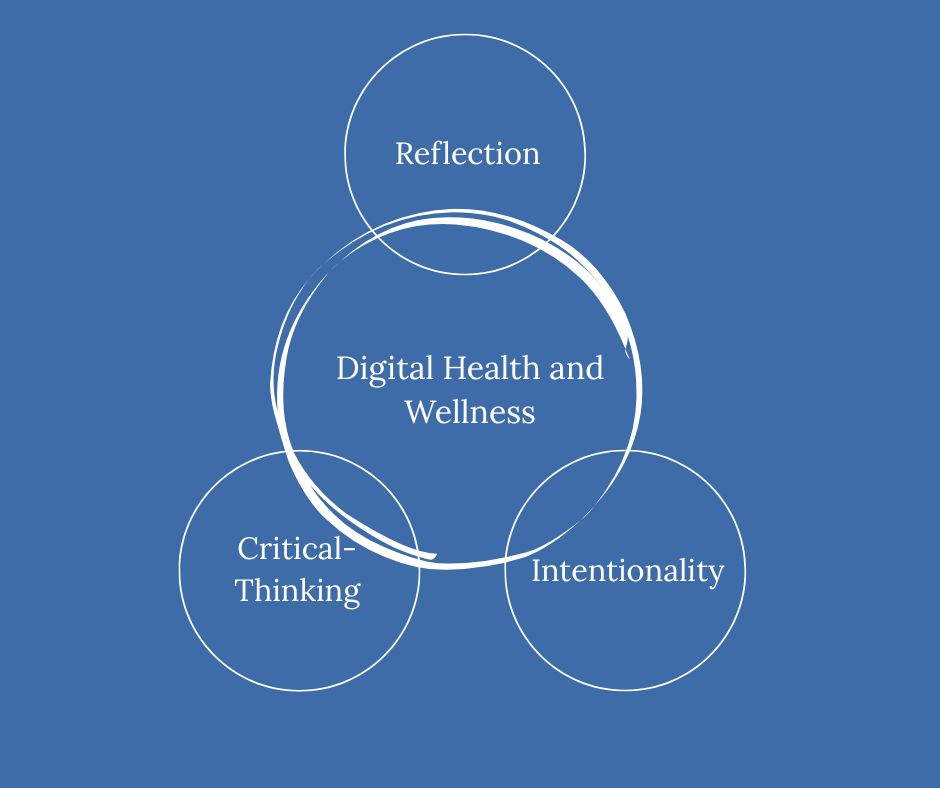Digital Wellness Project is a multi-disciplinary initiative focused on shaping policy, advancing education, and providing resources to support healthier digital media use among youth. We collaborate with educators, caregivers, healthcare professionals, and human service sectors to promote a harm-reduction approach to technology. We offer tools, courses, and programs that foster balanced engagement in an increasingly connected world.
Approach
Digital Wellness Project addresses a broad range of digital media, including social media platforms, artificial intelligence (AI) tools, video games, online pornography, streaming services, and other emerging technologies, all within the context of how they impact youth development, safety, mental health, and well-being.
At Digital Wellness Project, the work is grounded in research and shaped by evidence-based practices. Every program, course, and resource developed is informed by findings in tech ethics, psychology, human-computer interaction, education, and pediatrics. This multidisciplinary approach enriches our perspective, ensuring that ethical, developmental, cognitive, and health considerations are thoughtfully balanced when addressing the challenges and opportunities of digital life.
To address the needs of youth within the current digital context, it is imperative to consider their lived experiences and perspectives, as they often engage with technology more frequently and fluently than adults. The research is clear: young people benefit most not from restrictions, but when they are recognized as experts of their own digital experiences, supported by adults who offer guidance and a strong support system.
Digital Wellness Project is not about fear. It is about equipping the frontline—those directly supporting youth—with the knowledge and tools they need to make informed choices in a digital world.
The Digital Wellness Framework empowers individuals to use technology with reflection, intention, and critical- thinking. By noticing how online experiences make us feel (reflection), engaging in purposeful and safe digital behaviors (intention), and evaluating the credibility and impact of what we see (critical-thinking), users can better protect their privacy, stay safe, spot false or harmful information, and create healthier relationships with digital content.
Leah Jacobs, Founder & Director
Leah Jacobs, MS, LMHC, is a licensed mental health counselor who spent several years working closely with youth and families in clinical settings. Throughout her time practicing, she observed a growing trend: many of the challenges clients faced were increasingly tied to digital media use. These experiences sparked a deeper curiosity and concern about the broader impact of technology on mental health and well-being.
Driven by what Leah witnessed on the frontlines, she shifted her focus from micro-level therapeutic work to macro-level change. Today, Leah’s work centers on digital health and wellness through the lenses of policy advocacy, program design, and educational course development. Her goal is to equip caregivers, educators, and health and human service institutions with the tools they need to foster healthier digital environments for young people.
Leah is a member of Women and AI Ethics and UB’s Center for Information Integrity. She also holds multiple certifications in Youth Mental Health, Social-Emotional Learning (SEL), and Technology Addiction and Digital Health in Children and Adolescents. She is committed to continuous learning and actively seeks out opportunities to expand her expertise.


